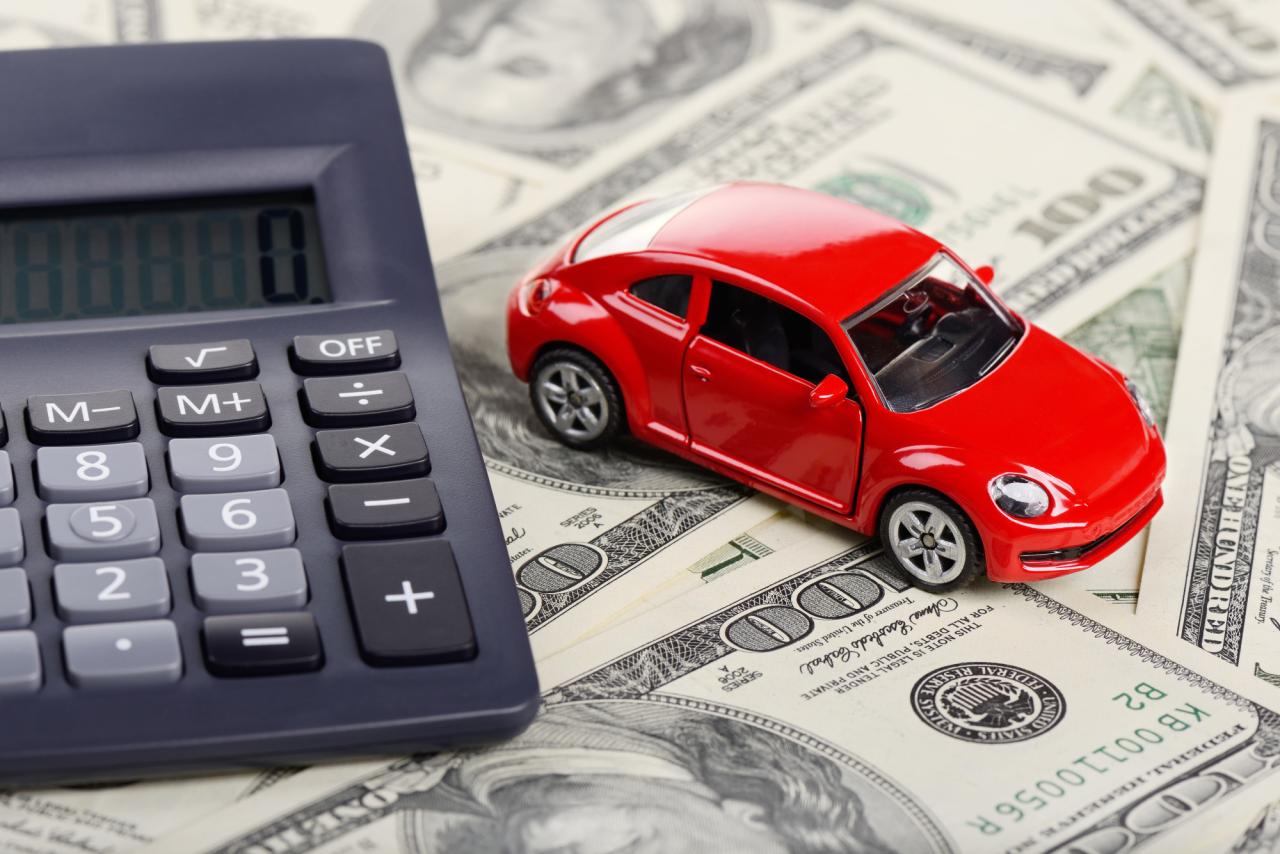Credit Score Impact

Your credit score is a crucial factor in securing a car loan. Lenders use it to assess your creditworthiness and determine whether you’re a reliable borrower. A higher credit score typically translates to better loan terms, while a lower score can significantly impact your ability to get approved or result in higher interest rates. Understanding this relationship is essential for navigating the car loan process successfully.
A strong credit score significantly increases your chances of loan approval and secures you more favorable interest rates. Conversely, a poor credit score can lead to loan denial or substantially higher interest rates, making the loan more expensive overall. For example, a borrower with an excellent credit score (750 or above) might qualify for a loan with an interest rate of 3%, while a borrower with a poor credit score (below 600) might face an interest rate of 10% or more, potentially doubling the overall cost of the loan. This difference can amount to thousands of dollars over the life of the loan.
Factors Affecting Creditworthiness, How can you finance a car
Lenders consider several key factors when evaluating your creditworthiness. These include your payment history (the most significant factor), amounts owed (credit utilization), length of credit history, new credit, and the types of credit you use. A consistent history of on-time payments demonstrates financial responsibility and positively impacts your score. High credit utilization (using a large percentage of your available credit) can negatively affect your score, as can frequently applying for new credit. A longer credit history, showing a pattern of responsible credit management over time, generally results in a better score.
Improving Credit Score Before Applying
Before applying for a car loan, taking steps to improve your credit score can significantly enhance your chances of approval and secure better interest rates. This involves reviewing your credit report for errors, paying down existing debts to reduce credit utilization, and consistently making on-time payments on all accounts. Establishing a longer credit history by responsibly using credit cards and other credit products can also be beneficial. Consider paying off high-interest debt first to reduce your overall debt burden.
Strategies for Maintaining a Good Credit Score
Improving and maintaining a good credit score requires consistent effort. Here are some key strategies:
- Pay all bills on time, every time. Late payments significantly harm your credit score.
- Keep your credit utilization low. Aim to use less than 30% of your available credit on each card.
- Avoid opening too many new credit accounts in a short period. This can negatively impact your score.
- Monitor your credit report regularly for errors and discrepancies. Dispute any inaccuracies promptly.
- Maintain a mix of credit accounts (credit cards, loans, etc.), demonstrating responsible management of various credit types.
Calculating Monthly Payments

Understanding how much a car loan will cost each month is crucial before you commit to buying. Several factors influence your monthly payment, making it essential to perform accurate calculations. This section will detail the process of calculating your monthly car loan payment and explore how different loan terms and interest rates impact your budget.
How can you finance a car – The primary factors that determine your monthly car loan payment are the principal loan amount, the interest rate, and the loan term (length of the loan). The principal is the total amount you borrow. The interest rate is the percentage charged by the lender for borrowing the money. The loan term is the period over which you’ll repay the loan, typically expressed in months.
Factors Determining Monthly Car Loan Payments
These three key elements interact to determine your monthly payment. A larger principal loan amount will naturally result in higher monthly payments. Similarly, a higher interest rate will increase your monthly payment because you’re paying more for the privilege of borrowing the money. Finally, a longer loan term will result in lower monthly payments, but you will end up paying significantly more interest over the life of the loan. A shorter loan term means higher monthly payments, but you’ll pay less interest overall.
Calculating Monthly Payments Using a Formula
While online calculators are convenient, understanding the underlying formula provides deeper insight. The most common formula used to calculate monthly loan payments is:
M = P [ i(1 + i)^n ] / [ (1 + i)^n – 1]
Where:
- M = Monthly Payment
- P = Principal Loan Amount
- i = Monthly Interest Rate (Annual Interest Rate / 12)
- n = Number of Months (Loan Term in Years * 12)
For example, if you borrow $20,000 at a 5% annual interest rate for 60 months (5 years), the calculation would be:
i = 0.05 / 12 = 0.004167
n = 60
M = 20000 [ 0.004167 (1 + 0.004167)^60 ] / [ (1 + 0.004167)^60 – 1]
Solving this equation will give you the approximate monthly payment.
Using an Online Calculator to Estimate Monthly Payments
Many reputable websites offer free online car loan calculators. These calculators simplify the process. You typically input the loan amount, interest rate, and loan term, and the calculator will compute the estimated monthly payment. Many calculators also show the total interest paid over the loan’s life, providing a complete picture of the financing costs.
For instance, a user could input a $25,000 loan amount, a 7% interest rate, and a 72-month loan term into a calculator. The output would be an estimated monthly payment, along with the total interest paid over the life of the loan. This provides a quick and easy way to compare different loan scenarios.
Impact of Loan Terms and Interest Rates on Monthly Payments
The following table illustrates how varying loan terms and interest rates affect monthly payments for a $20,000 loan:
| Loan Term (Months) | Interest Rate (Annual) | Approximate Monthly Payment | Total Interest Paid |
|---|---|---|---|
| 36 | 5% | $591 | $1286 |
| 48 | 5% | $461 | $1732 |
| 60 | 5% | $387 | $2216 |
| 60 | 7% | $420 | $2520 |
Note: These are approximate figures and actual payments may vary slightly depending on the lender and any additional fees.
Alternative Financing Methods: How Can You Finance A Car

Securing a car loan through a traditional dealership isn’t the only path to car ownership. Several alternative financing methods offer different advantages and disadvantages, making it crucial to understand your options before committing to a purchase. Choosing the right method depends on your individual financial situation and creditworthiness.
Exploring alternative financing options can be beneficial, especially if you’ve experienced challenges securing a loan through traditional channels. These options can provide more flexibility and potentially better terms depending on your circumstances. Let’s examine some key alternatives and compare them to traditional car loans.
Personal Loans
Personal loans, offered by banks and online lenders, provide a lump sum of money that can be used to purchase a car. Unlike auto loans, they aren’t specifically tied to the vehicle, offering more flexibility in how you use the funds. However, interest rates can vary significantly depending on your credit score and the lender.
Credit Union Financing
Credit unions are member-owned financial cooperatives that often offer more competitive interest rates and better terms on auto loans compared to traditional banks or dealerships. Membership requirements vary, but if you qualify, a credit union loan can be a cost-effective way to finance your car. They may also be more willing to work with borrowers who have less-than-perfect credit.
Comparison of Financing Methods
The following table compares the features of traditional auto loans, personal loans, and credit union loans. Remember that interest rates and terms are subject to change based on market conditions and individual borrower profiles. Always shop around and compare offers before making a decision.
| Feature | Traditional Auto Loan | Personal Loan | Credit Union Loan |
|---|---|---|---|
| Interest Rates | Generally competitive, vary based on credit score and vehicle type. | Variable, often higher than auto loans, especially for borrowers with lower credit scores. | Often lower than traditional auto loans, especially for members with good credit. |
| Loan Term | Typically 36-72 months, sometimes longer. | Flexible, ranging from 12 to 84 months or more. | Similar to traditional auto loans, but may offer more flexibility. |
| Application Process | Often completed through the dealership or bank. | Typically involves a credit check and application through the lender. | Requires membership, but the application process is often simpler than traditional banks. |
| Use of Funds | Specifically for vehicle purchase. | Can be used for any purpose, including a car purchase. | Specifically for vehicle purchase. |
| Fees | May include origination fees, depending on the lender. | May include origination fees, prepayment penalties, and other fees. | Fees vary depending on the credit union, but generally lower than traditional banks. |
| When it’s a better option | Good credit, looking for specific auto loan terms. | Need flexibility in loan usage, potentially higher interest rates accepted. | Good credit, looking for lower interest rates and potentially better terms. |

Tim Redaksi